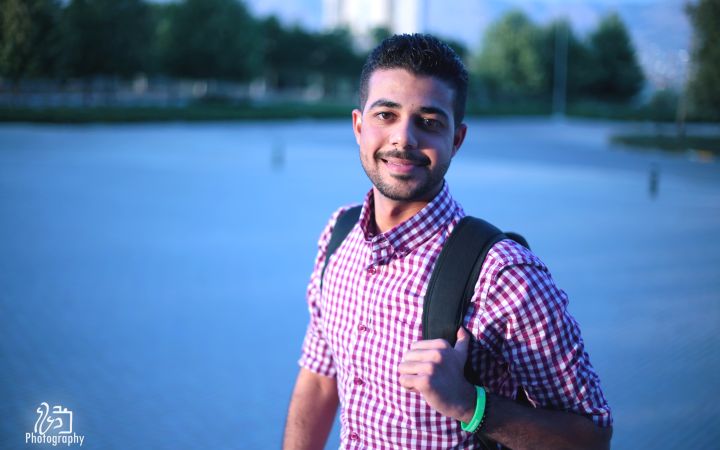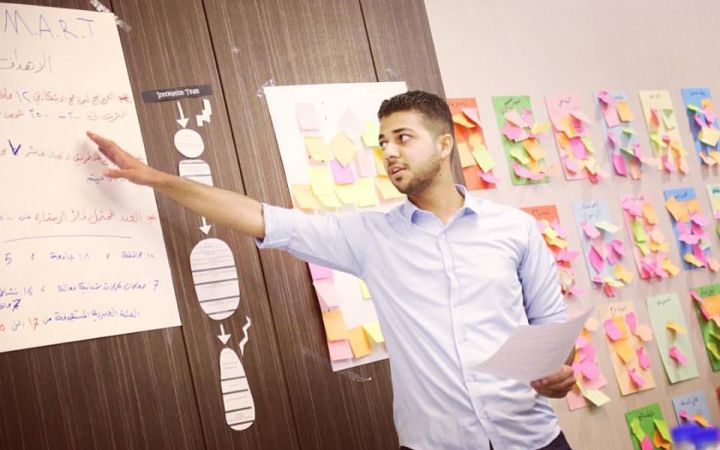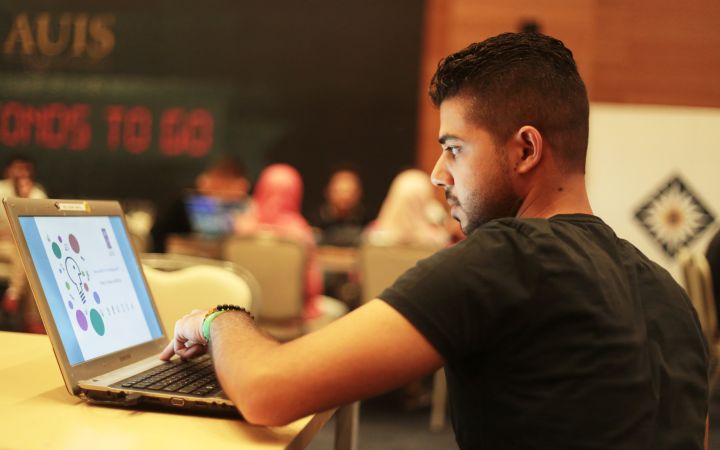Far from bragging about it, 25 years old Hasan might be too modest to acknowledge he's part of Iraq's best chances for a brighter future. Born in Baghdad one year after the end of the first Gulf War, he grew up in a family of engineers that definitely nurtured his own interest for science. “This is a field I've always felt a huge interest for, just like some of my brothers and sisters.”
In 2010, Hasan entered University of Technology - Baghdad, where he became a specialist in Electrical Engineering. He also had the opportunity to study in Columbia College and University of Missouri in USA, and started volunteering for the United Nations Development Programme – innovation for development project as Design Thinking trainer. He obtained his Master in 2017 and has since become a trainer in his university, realizing one of his dreams.
“My family was very open-minded and supportive, they’ve always encouraged me to follow my own path. But I have to admit that until 2013, I was an ordinary student, with no clear perspective on what that path could be. I just wanted to finish my studies, leave the university and find a good job. Since then, I have become a trainer, but not an ordinary one in the sense that I get to mix real practical life with theoretical knowledge. This is a working method that you seldom encounter in Iraq’s academic world.”
“During my studies, I already was giving training about entrepreneurship, leadership or team-building to my fellow students, and helped them to write a solid CV, how to build an effective communication plan, or how to successfully pass an interview for any kind of job. Then I saw that it could become a full-time job, so I decided to become professional trainer.” Several big companies in Iraq have asked for his expertise, among whom AstraZeneca (a biopharmaceutical company), Zain Iraq (the country's biggest communication specialist) and the University of Technology (with 16 engineering department). Three different universities, as well as Baghdad's Al Mansour Mall (one of the biggest in the city), have showed interest in allowing him to organize a technology job fair. But it wasn't all smooth sailing and Hasan still has to deal with some resistance to make his voice heard.
“Getting to work for a university is one of my biggest challenges, because it is so hard to convince people of the importance of allowing students to learn leadership techniques in the engineering field.”
“Many people in charge in the academia have a hard time taking it seriously. Most of the ones I've had to deal with were in their sixties and didn't see that the world they knew had changed.”
When asked about UNITAR's courses he took in 2016, the first word that comes to Hasan's mind is “fascination”. “Everything was very well thought-out, and not boring at all. The skills taught there were very helpful to me because I already had clear projects in my head but I did not know what were the proper first steps, and I had no idea of the number of things to take in consideration before starting anything. I was especially excited to learn about PESTLE analysis, for example. We were twenty-four participants of the Fellowship who've become friends since then, and we keep on seeing each other every second Thursdays to talk about our projects.”
Iraqis have gone through tough times in recent years and in the eyes of the younger generation, the future might not look so bright. But Hasan seems immune to any kind of pessimism. “Many friends or people I meet in my daily life are telling me: ‘your English is great, you have an academic degree, why don't you leave to work in the United States or somewhere else?’ I tell them that I believe in our country and its youth. I am convinced that we can have a brighter future, here and now.
Hasan now is 28 years old, working with UNDP Accelerator Labs as Head of Solutions Mapping to find local innovations to tackle the 21st century challenges. Also, he wrote the first Training Manual about Design Thinking with community volunteers to support the Iraqi entrepreneurs in their career life.




